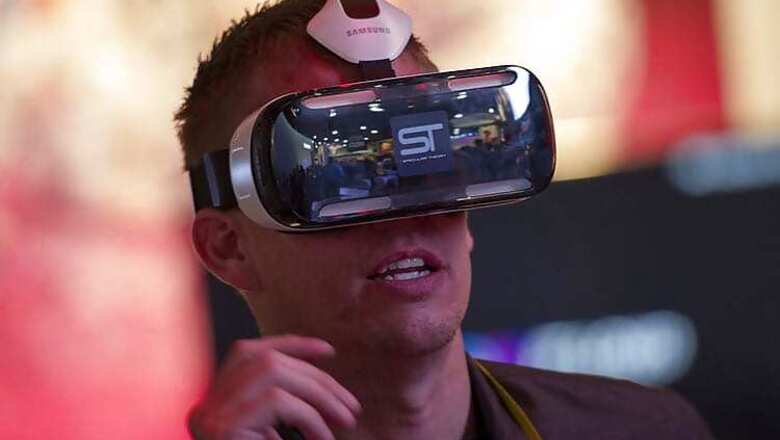
views
Vancouver: Chris Milk stepped onto a TED Conference stage and took the audience on an awe-inducing trip into the future of movies.
While much of the early attention on virtual reality has focused on use of the immersive technology in video games, Milk and his US startup Vrse are using it to transform storytelling and filmgoing.
"We have just started to scratch the surface of the true power of virtual reality," Milk said.
"It's not a video game peripheral. It connects humans to other humans in a profound way... I think virtual reality has the potential to actually change the world."
He had everyone in the Vancouver audience at TED, which ended Friday, hold Google Cardboard viewers to their eyes for what was billed as the world's collective virtual reality experience.
Google Cardboard gear is literally that -- cardboard with a slot for holding smartphones at act as screens for viewing. Ear buds plug into smartphones to tune into soundtracks.
Audience members gasped collectively at times as they found themselves virtually transported in front of an oncoming locomotive, the sky above a city, a stage with a rock band and elsewhere.
"It is the first medium that actually makes the jump from the author's expression of an experience to our experiencing it first hand," Milk said.
Vrse has made more tha a dozen virtual reality films in the past year and Milk said peers in the industry are tremendously interested in the technology.
- An empathy machine -
"It is amazing that you can just take a cardboard box and add it to someone's smartphone and have an experience like that together," Milk said after his TED talk.
"Virtual reality is not just a social experience, but a collective experience."
Milk sees virtual reality as bringing people together instead of isolating them in fantasy worlds disconnected from what is going on around them.
"I can connect you not just with someone across the aisle from you, I can connect you to someone across the world," Milk said.
He referred to virtual realty as "an empathy machine" capable of making people better relate to the lives of others by sharing places and experiences in such a manner that comes powerfully close to walking alongside them.
"It is incredibly exciting for all the obvious reasons and incredibly intimidating," Milk said of the challenge of content creators to live up to the hype and high-expectations for virtual reality.
"We are still at the train coming into the station, and everyone is expecting 'Citizen Kane.' I just hope that we can live up to everyone's expectations."
He pictured a future in which people do not go to theaters and watch films the way they do today. Countless numbers of people using VR headgear could watch a film "together" while being nowhere near one another.
"The movie theater was created because you needed it to project something on a wall and have 100 people pay to watch it," Milk said.
"It is an antiquated structure for this new medium. There is no limit to the scale of what you could create if you want to connect people together."




















Comments
0 comment